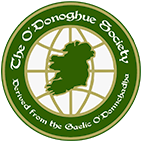This page provides direction for new researchers, and helps current researchers brush up their skills.
For new researchers here are twelve basic starter principles
- Start off with yourself and work backwards, generation by generation.
- Document your sources rigorously.
- Be methodical with your record keeping. Start with a simple system. Record every search even if you don’t find anything.
- Do not accept a piece of data as a fact, until you have a valid basis for doing so.
- Talk to all your relatives – the oldest first. Gather birth, death and marriage certificates and other family documents and photos from them.
- Make comprehensive notes.
- Define your objectives. Decide whether to start with your father’s line or mother’s. Keep your aims achievable in a reasonable time perspective.
- Understand the origin of your surname(s). There are four origins normally: place, occupation, patronymic (like O’Donoghue = Ó Donnchadha = grandson or descendant of Donnchadh) or nickname.
- Join a family history society and try and ‘meet’ other people with similar interests.
- Use technology to the full.
- Search for the births, deaths and marriages to build your tree
- Move onto census records when you have some of the addresses your ancestors lived at.
Guidance and training courses are offered at a number of web sites. I cannot say that I have tried them but these look relevant:
Genealogy Beginner? Step by step genealogy lessons at Ancestor Search (searchforancestors.com)
BBC – Family History: Get Started
BYU Family History Library – YouTube
The University of Strathclyde Future Learn Course is an excellent grounding
